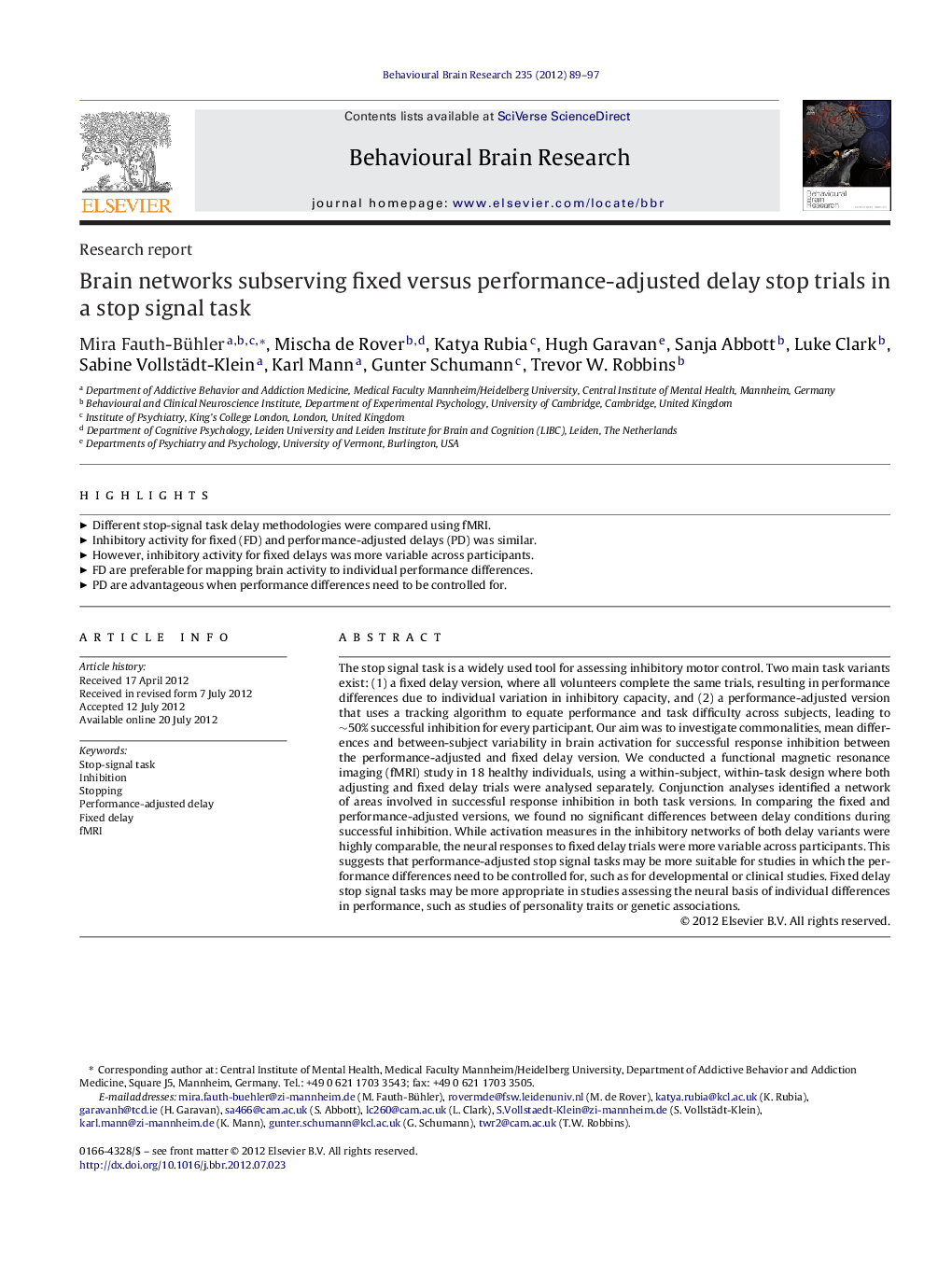| کد مقاله | کد نشریه | سال انتشار | مقاله انگلیسی | نسخه تمام متن |
|---|---|---|---|---|
| 4313055 | 1289982 | 2012 | 9 صفحه PDF | دانلود رایگان |

The stop signal task is a widely used tool for assessing inhibitory motor control. Two main task variants exist: (1) a fixed delay version, where all volunteers complete the same trials, resulting in performance differences due to individual variation in inhibitory capacity, and (2) a performance-adjusted version that uses a tracking algorithm to equate performance and task difficulty across subjects, leading to ∼50% successful inhibition for every participant. Our aim was to investigate commonalities, mean differences and between-subject variability in brain activation for successful response inhibition between the performance-adjusted and fixed delay version. We conducted a functional magnetic resonance imaging (fMRI) study in 18 healthy individuals, using a within-subject, within-task design where both adjusting and fixed delay trials were analysed separately. Conjunction analyses identified a network of areas involved in successful response inhibition in both task versions. In comparing the fixed and performance-adjusted versions, we found no significant differences between delay conditions during successful inhibition. While activation measures in the inhibitory networks of both delay variants were highly comparable, the neural responses to fixed delay trials were more variable across participants. This suggests that performance-adjusted stop signal tasks may be more suitable for studies in which the performance differences need to be controlled for, such as for developmental or clinical studies. Fixed delay stop signal tasks may be more appropriate in studies assessing the neural basis of individual differences in performance, such as studies of personality traits or genetic associations.
► Different stop-signal task delay methodologies were compared using fMRI.
► Inhibitory activity for fixed (FD) and performance-adjusted delays (PD) was similar.
► However, inhibitory activity for fixed delays was more variable across participants.
► FD are preferable for mapping brain activity to individual performance differences.
► PD are advantageous when performance differences need to be controlled for.
Journal: Behavioural Brain Research - Volume 235, Issue 1, 1 November 2012, Pages 89–97